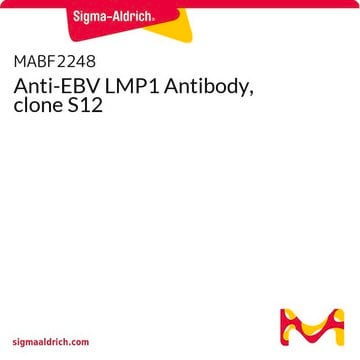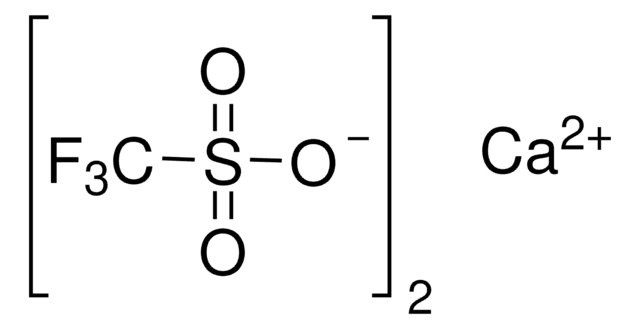MABF2302
Anti-HLA-A02:01 EBV-LMP2A Antibody, clone MAB243
Sinónimos:
Latent membrane protein 2
About This Item
Productos recomendados
origen biológico
mouse
Nivel de calidad
conjugado
unconjugated
forma del anticuerpo
purified antibody
tipo de anticuerpo
primary antibodies
clon
MAB243 (also referenced as L2), monoclonal
mol peso
calculated mol wt 53.01 kDa
purificado por
using protein G
reactividad de especies
human
envase
antibody small pack of 100 μg
técnicas
ELISA: suitable
flow cytometry: suitable
immunocytochemistry: suitable
immunofluorescence: suitable
western blot: suitable
isotipo
IgG1κ
secuencia del epítopo
C-terminal
Nº de acceso Protein ID
Nº de acceso UniProt
Condiciones de envío
ambient
modificación del objetivo postraduccional
unmodified
Información sobre el gen
human ... LMP2(3783751)
Categorías relacionadas
Descripción general
Especificidad
Inmunógeno
Aplicación
Evaluated by Flow Cytometry in T2 cells pulsed with LMP2 peptide (426-434).
Flow Cytometry Analysis (FC): 1 μg of this antibody detected HLA-A2-EBV LMP2A in one million T2 cells pulsed with LMP2 peptide (426-434).
Tested Applications
ELISA Analysis: A representative lot detected HLA-A02:01 EBV-LMP2A in ELISA applications (Lai, J., et al. (2016). Blood. 128(10):1396-407; Lai, J., et al. (2017). Sci Rep. 7(1):9923).
Immunohistochemistry Applications: A representative lot detected HLA-A02:01 EBV-LMP2A in Immunohistochemistry applications (Lai, J., et al. (2016). Blood. 128(10):1396-407).
Western Blotting Analysis: A representative lot detected HLA-A02:01 EBV-LMP2A in Western Blotting applications (Lai, J., et al. (2016). Blood. 128(10):1396-407).
Flow Cytometry Analysis: A representative lot detected HLA-A02:01 EBV-LMP2A in Flow Cytometry applications (Lai, J., et al. (2016). Blood.;128(10):1396-407; Lai, J., et al. (2017). Sci Rep.;7(1):9923).
Immunofluorescence Analysis: A representative lot detected HLA-A02:01 EBV-LMP2A in Immunofluorescence applications (Lai, J., et al. (2016). Blood. 128(10):1396-407).
Immunocytochemistry Analysis: A representative lot detected HLA-A02:01 EBV-LMP2A in Immunocytochemistry applications (Lai, J., et al. (2016). Blood. 128(10):1396-407).
Note: Actual optimal working dilutions must be determined by end user as specimens, and experimental conditions may vary with the end user
Forma física
Almacenamiento y estabilidad
Otras notas
Cláusula de descargo de responsabilidad
Not finding the right product?
Try our Herramienta de selección de productos.
Código de clase de almacenamiento
12 - Non Combustible Liquids
Clase de riesgo para el agua (WGK)
WGK 1
Punto de inflamabilidad (°F)
Not applicable
Punto de inflamabilidad (°C)
Not applicable
Certificados de análisis (COA)
Busque Certificados de análisis (COA) introduciendo el número de lote del producto. Los números de lote se encuentran en la etiqueta del producto después de las palabras «Lot» o «Batch»
¿Ya tiene este producto?
Encuentre la documentación para los productos que ha comprado recientemente en la Biblioteca de documentos.
Nuestro equipo de científicos tiene experiencia en todas las áreas de investigación: Ciencias de la vida, Ciencia de los materiales, Síntesis química, Cromatografía, Analítica y muchas otras.
Póngase en contacto con el Servicio técnico







